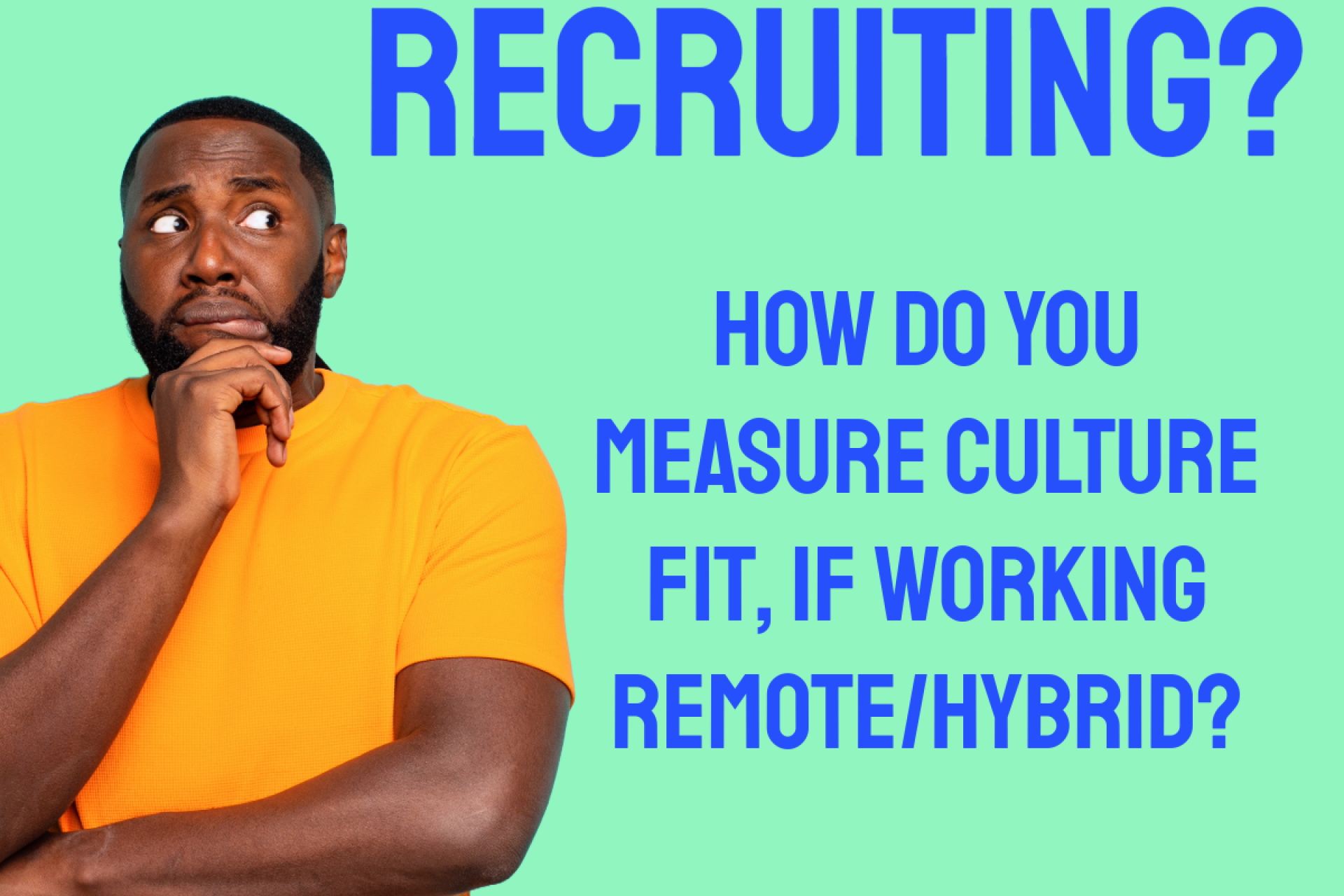
Strategies to Assess Culture Fit when recruiting remote/hybrid
Since adopting a hybrid or remote way of working, are you struggling to measure culture fit, during your recruitment process? Not sure where to start or what to do? Don't worry, we've got you covered!
This blog will guide you on effective strategies for evaluating cultural alignment when the physical offices space is no longer the primary hub of collaboration. We're hoping you'll find all the answers you need here, but remember that we're also only a phone call or email away, if you'd like to have a more in-depth chat, like many companies have already.
Due to hybrid or remote working, the recruitment landscape has undergone a huge transformation, bringing with it the need to reassess how we measure culture fit. Let's look at the main areas to really look into:
Redefine Cultural Fit for the Hybrid Reality: The shift to hybrid or remote work demands a re-evaluation of what cultural fit means for your company. It might not mean what it once did. Consider how values, communication and collaboration will translate and establish a clear understanding of your virtual culture as a foundation for the hiring process.
Emphasise Digital Communication Skills: With virtual interactions becoming the norm, assessing a candidate's digital communication skills is paramount. Evaluate their proficiency in written communication, responsiveness to virtual messages and their ability to convey ideas clearly in a remote setting. This aligns with the adaptability required for remote work culture.
Virtual Culture Showcasing: Use technology to your advantage by incorporating virtual office tours, video messages from team members, or interactive online sessions during the recruitment process. This provides candidates with a glimpse into the remote work culture and helps them better assess their fit within your business.
Leverage Video Interviews: Video interviews have become a staple in remote recruitment. Beyond evaluating technical skills, use these interviews to observe a candidate's virtual presence. Assess how comfortable and engaged they are in a digital environment, as this mirrors their potential fit into your remote work culture.
Collaborative Online Assessments: Implement collaborative online assessments that mimic remote work scenarios. This could include virtual team projects or problem-solving tasks where candidates showcase their ability to work effectively with others, even when physically distant.
Cultural Fit Workshops: Organise virtual workshops that simulate your company's work culture. This could involve group discussions, brainstorming sessions, or virtual team-building activities. These workshops allow candidates to experience your culture firsthand and showcase their adaptability to remote collaboration.
Flexible Work Style Assessment: Evaluate a candidate's flexibility and adaptability to different work styles. Ask about their preferred work hours, remote work setup, and how they maintain work-life balance. Assessing their alignment with your company's flexibility norms can be crucial in determining cultural fit.
Measuring culture fit in a hybrid or remote work setting requires a thoughtful blend of traditional assessment methods and innovative strategies tailored to the virtual landscape. By remembering your values which are core to your company and incorporating the above measures, should help to build teams and companies that thrive in a hybrid or remote working environment.